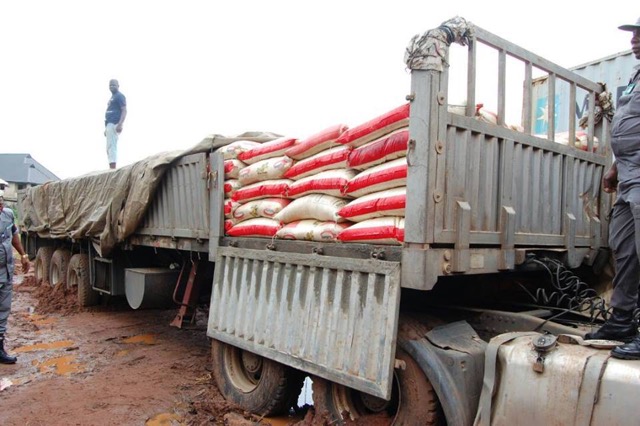
I know that with the lifting of the ban, rice importation will also suffer some set back because we will have a lot of it coming through the borders which will never be accounted for and appropriate duty paid. But if it is well managed and there is a real channel for making sure that appropriate duty is collected on each bag of rice that cross through the border, then it is a good development. The main thing is to make sure that it is well controlled so that government will collect its revenue. Some are saying the lifting of the ban will affect the businesses of the local farmers but we have not seen their rice in the market, the rice we see in the market today is imported rice. If the local farmers will put their heads together and make sure that their presence is felt, government will know the best decision to take on the policy. For now I think they should continue to make their impact felt by ensuring enough production of the commodity in the market, otherwise, I support the government.
Festus Ukwu
To me, it is a good thing to happen and a welcome development because the battle that Customs says they are fighting against smugglers is a battle that is very difficult to win. When they said they banned rice from coming in, they were still smuggled in which means government is still losing revenue. So, with the lifting of the ban, duty will be paid and government will generate revenue from that area. What customs should focus on now is to ensure duties are collected on all the rice imported through the borders. So it is a welcome development. It is also good that there is no variation in the amount an importer pays as duty if he decides to import through the port or land border. Although, there is good harvest in Nigeria now but what we harvest is not sufficient enough for the nation so if they allow importation through the port and land borders, importers also should be ready to pay. It will not have too much effect on the businesses of the local rice farmers because what they are producing at the moment is not sufficient when compared to demand. So we cannot shut the door when we don’t have sufficient rice to cater for Nigerians. One of the things government should also introduce if there is any foreseen effect on the local farmers is to organise what we call marketing boards. This people will buy over the produce whenever the local farmers produce so that no farmer will suffer any financial lost.
Odolo Nicodemus
It is a very good development. We love it and we are very much in support of the lifting of the ban. People that are operating in that area have suffered a great deal, so it is a breath of fresh air for them. I don’t think it will destroy the business of the local farmers rather it will increase their effort to produce more. If they produce enough, there will be competition. Personally, I eat Nigerian rice and I know it is far better than imported rice. So, if we find out that what they have produced is even better than the imported rice, we will patronise the local rice. So, what they should do at this moment is for them to increase the volume of their production to bring it to be at par with those imported.
Frank Ukor
It is a welcome development because we have been looking forward to that for a long time. Before now, the restriction only increased the cost of rice and encouraged smuggling but now that they have relaxed the law, people can bring in the commodity through the land borders and pay their duty. That will also reduce the cost of rice. So we are saying it is a welcome development because it will also help create jobs for those living in the border areas. This is the first step the Comptroller General has taken and we believe that by going into more discussion with him, the rate of duty may be reduced to 50 percent. Rice is a stable food and Nigeria has not been producing enough even with the high duty rate.
Frank Aliakor